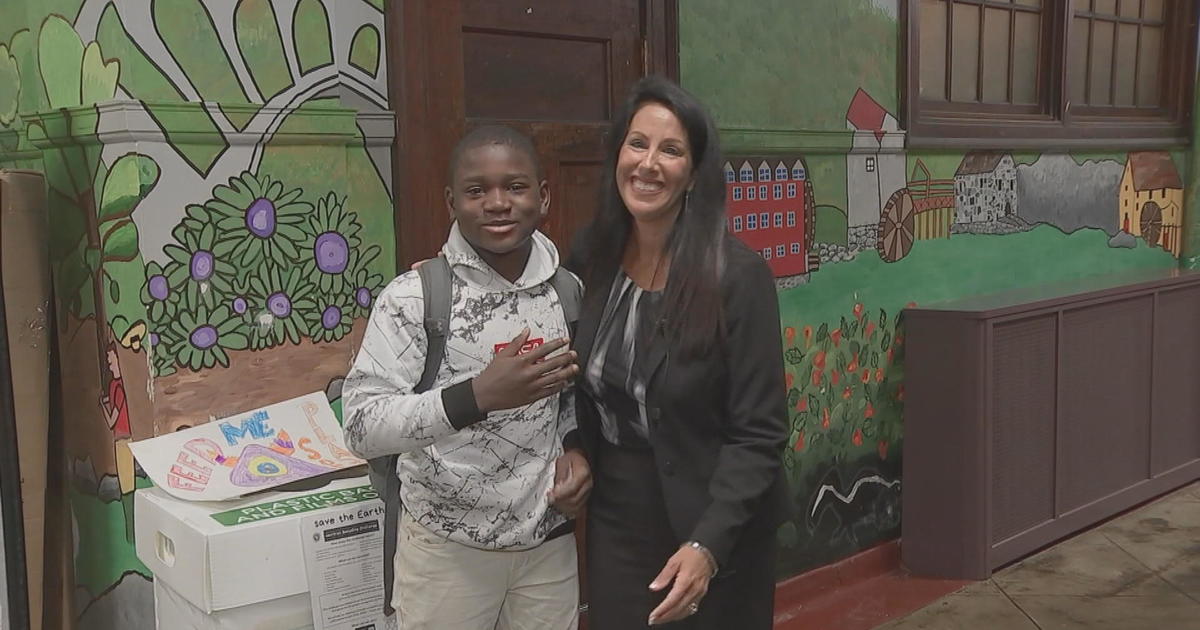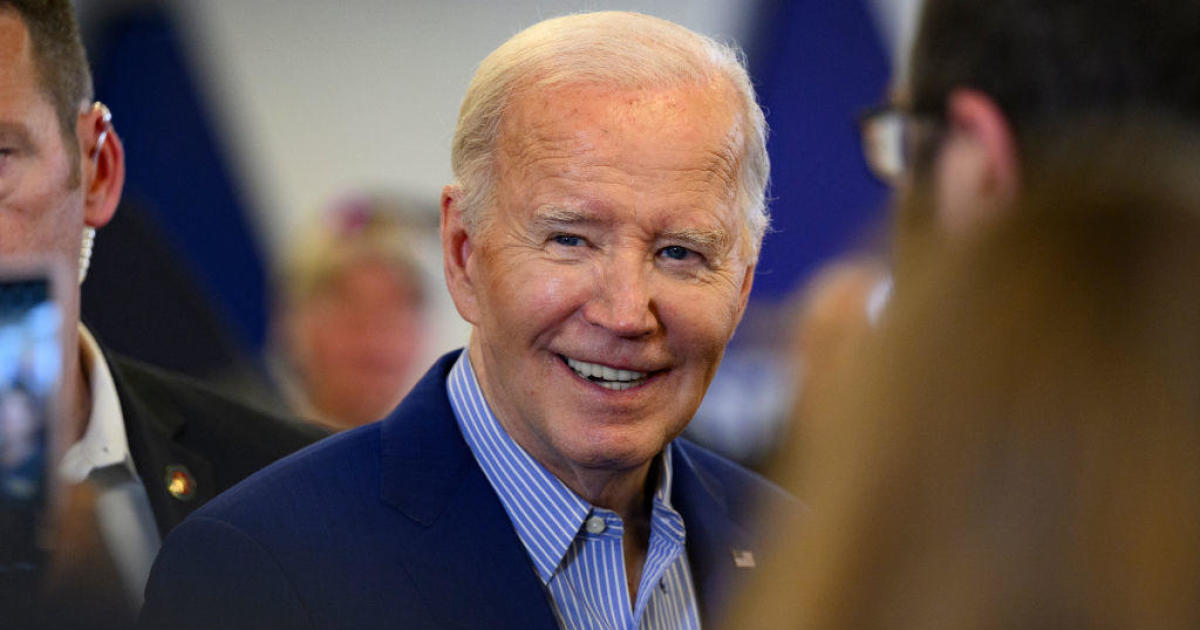6 Takeaways From Super Tuesday
By Eric Bradner
PHILADELPHIA (CNN) -- Donald Trump and Hillary Clinton didn't win their parties' nominations on Super Tuesday -- but they both became much harder to beat.
Trump racked up wins in seven states to Texas Sen. Ted Cruz's three and Florida Sen. Marco Rubio's one. And Clinton defeated Vermont Sen. Bernie Sanders in seven of the 11 Democratic contests.
Here are six takeaways from the biggest day in the 2016 presidential race so far:
The Trump coalition comes together
He proved it in the early states and now he has proven it on Super Tuesday: Donald Trump is leading a coalition.
New Hampshire and Massachusetts showed he wins white, working-class moderates -- the Reagan Democrats. South Carolina, Tennessee, Alabama and Georgia showed he wins evangelicals in the Bible Belt. And record-shattering Republican turnout in Virginia showed he expands the party's base of voters.
"I'm a unifier --- I know people are going to find that a little bit hard to believe, but believe me," Trump said.
Trump is running away with the GOP nomination, as his rivals continue their never-ending fight about who's the best alternative.
He survived the latest controversy, this one over whether he'd given a subtle wink to white supremacists by deflecting questions about whether he'd disavow former Ku Klux Klan grand wizard David Duke in an interview with CNN's Jake Tapper.
And he bested two opponents who'd devoted an entire two-hour debate Thursday night to dumping their opposition research books on his head.
After an introduction by former rival and new campaign surrogate New Jersey Gov. Chris Christie, Trump congratulated Cruz on an "excellent win" in Texas before turning his attention to Hillary Clinton.
"Make America great again is going to be much better than making America whole again," he said, referencing her new attack line.
Clinton rolls up wins in the South
It's the polar opposite of where Clinton found herself eight years ago. This time, she's ahead in the delegate race and has won a majority of the Democratic contests.
Clinton won a swath of delegate-rich Southern states with large minority populations, easily besting Sanders in Texas, Georgia, Virginia, Alabama, Tennessee and Arkansas. And she won the night's biggest toss-up, narrowly defeating Sanders in Massachusetts. The Massachusetts win, in particular, showed that it's not just a minority firewall for Clinton -- she can win states that are predominantly white.
The Democratic nominating contest allocates delegates proportionally, so Clinton hasn't knocked Sanders out of the race.
But she has a date in mind to do just that: March 15.
With all of the momentum, Clinton is aiming for wins in a series of big states -- Michigan on March 8 and then Florida, Ohio, Illinois, North Carolina and Missouri on March 15.
At that point, the scenarios for a Sanders comeback become "less and less likely," Clinton spokesman Brian Fallon said -- even though the campaign expects to lose in Kansas, Nebraska and Maine between now and then.
Cruz lives to fight another day
Cruz did exactly what he needed to do: He won his home state of Texas by a resounding margin, and he tacked on Oklahoma and Alaska -- allowing him to continue his argument that he is the only Republican who can beat Trump.
In fact, Cruz called on the rest of the GOP field to "prayerfully" consider dropping out of the race during his election-night speech.
"Tonight, this campaign enters a new phase," Cruz said. "Tomorrow morning we have a choice. So long as the field remains divided, Donald Trump's path to the nomination remains more likely, and that would be a disaster for Republicans, for conservatives and for the nation. And after tonight, we have seen that our campaign is the only campaign that has beaten, that can beat and that will beat Donald Trump."
Cruz's comments came before the results were finalized in Minnesota, Rubio's best state.
And he ignored the reality that there are no real signs the Republican establishment likes him any more than Trump.
But in the GOP primary right now, when Cruz or Rubio rises, the other falls -- and Cruz had the better night Tuesday.
On the other hand: Cruz had pegged his entire campaign to Super Tuesday, calling it the most important date in the race. He once used the word "firewall" to describe it -- a fact Rubio's campaign has gleefully trumpeted. Yet he only won two states, and many of the Southern states he banked on previously have now already voted.
Marco Rubio finally wins a state
Rubio has defended his string of second and third-place finishes by arguing he has a path to victory that focuses on the post-Super Tuesday states, including his native Florida.
He finally got on the board Tuesday, winning the Minnesota caucuses.
But overall, the night was another disappointment for Rubio, who spent much of the past week unleashing a barrage of Trump-like attacks against the billionaire businessman.
Now, Rubio has to explain, again, to donors and power brokers why he's worth a major investment. His argument: The race now goes to Michigan, and then five bigger states with more moderate, suburban, highly educated Republicans -- places he can win. Florida is one of them, and it's winner-take-all.
"That's where we're really going to catch fire," Rubio told CNN's Jake Tapper in a Tuesday night interview.
Trump and Cruz, meanwhile, are happy to tell Rubio that he's finished.
"He had a tough night. He is a lightweight," Trump said.
And he's ready to put Rubio away, saying, "We're gonna spend a lot of time in Florida."
Sanders hangs in
The Democratic night largely followed expectations, with Sanders picking up wins in Colorado, Minnesota, Oklahoma and Vermont.
The only other state where he stood a real chance was Massachusetts, a liberal stronghold bordering his native Vermont. But he was unable to win there, or dent Clinton's momentum elsewhere on the map.
Speaking early in the night, Sanders made the argument that he's racking up nearly as many delegates as Clinton -- so there's no reason for him to consider looking for the exits any time soon.
"This is not a general election; it's not winner-take-all," Sanders told his adoring crowd. "If you get 52%, you get 48%, you roughly end up with the same amount of delegates in a state. By the end of tonight, we are going to win many hundreds of delegates."
There's no reason Sanders can't stay competitive: He raised $42 million in February alone, giving him plenty of cash to match or outspend Clinton on the airwaves.
Sanders has another particularly useful tool in his pocket: More Democratic debates, starting Sunday night in Flint, Michigan.
Clinton agreed to them as Sanders was gaining momentum nationally. Now, though, they serve to extend the life of a race that Clinton's campaign would prefer to bring to an effective end as soon as possible.
Michigan votes next Tuesday -- and it'll be a precursor for the following week's Ohio primary. Those now look like states Sanders needs to win.
John Kasich, Ben Carson play the spoilers
There's a reason John Kasich is facing calls from Republicans to get out of the race: he's a spoiler to candidates trying to topple Trump.
In Virginia, for instance, Kasich took 9.4%, and Rubio lost to Trump by 2.8%.
"We basically fought Donald Trump to a draw. And had it been a narrower field, we would have won Virginia," Rubio said on CNN Tuesday night.
Expect a chorus of party brass to press Kasich to depart before Ohio's March 15 winner-take-all primary. If Rubio could win both Florida and Ohio on that day, he'd gain 165 delegates in one fell swoop.
But with Kasich in the race, that won't happen.
Kasich isn't inclined to help Rubio. His campaign argues that it's Rubio who is underperforming expectations -- spoiling, for example, what would've been a Kasich win in Vermont.
Dr. Ben Carson, too, is refusing to exit the race -- and while he's hardly racking up any delegates, he's a thorn in the side of Cruz.
Carson performs best among evangelical voters. That's Cruz's strong suit, too. While it's not clear where Carson's support would go, Cruz could have figured to pick up the largest share of it -- giving him a boost in Southern states.
The-CNN-Wire ™ & © 2016 Cable News Network, Inc., a Time Warner Company. All rights reserved.



